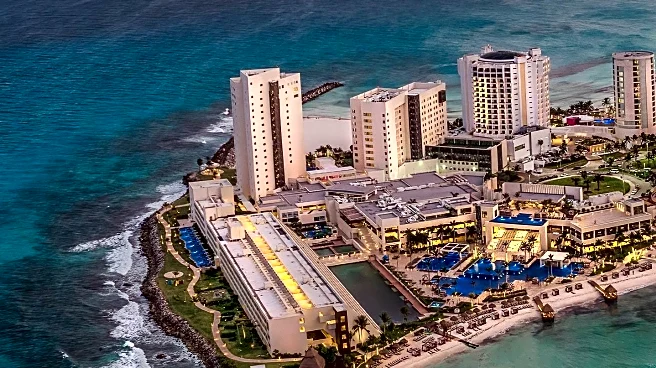What's Happening?
A study on sustainable lighting in coastal beach resorts in Coastal Karnataka, India, reveals its significant impact on guest psychological performance. The research highlights the role of energy-efficient
lighting solutions, such as LED and solar power, in reducing energy consumption while enhancing guest comfort. The study explores how lighting affects mood, relaxation, stress reduction, and sleep quality, using guest feedback to assess these psychological dimensions. Sustainable lighting is shown to influence guest satisfaction by creating aesthetically pleasing and environmentally responsible resort environments.
Why It's Important?
The findings underscore the growing importance of sustainable practices in the hospitality industry, particularly in regions where tourism and environmental preservation must be balanced. By adopting sustainable lighting, resorts can reduce their carbon footprint and operational costs while enhancing guest experiences. This approach aligns with global trends towards eco-friendly tourism and offers a competitive advantage for resorts seeking to attract environmentally conscious travelers. The study also contributes to a broader understanding of how environmental design can impact psychological well-being, offering insights for architects and designers.
What's Next?
Resorts in Coastal Karnataka and similar regions may increasingly adopt sustainable lighting solutions as part of their design and operational strategies. This shift could lead to broader industry changes, with more emphasis on integrating sustainability into all aspects of resort management. As awareness of the psychological benefits of sustainable lighting grows, guest expectations may evolve, prompting resorts to innovate further in their design and service offerings. The study's insights could also inform policy decisions and industry standards related to sustainable tourism practices.
Beyond the Headlines
The research highlights the intersection of environmental sustainability and psychological well-being, suggesting that sustainable design can enhance both ecological and human health. This dual focus may inspire new approaches to hospitality design that prioritize both guest satisfaction and environmental responsibility. The study also raises questions about the role of technology in creating sustainable and immersive environments, potentially influencing future developments in smart lighting and energy management systems.










